Electric Relay Control Common Use Rubber Plate Vulcanizing Press Machine
An electric relay control system is a common method used to automate the operation of a rubber vulcanizing press machine.
This system utilizes electric relays to control various functions of the machine, such as temperature, pressure, and timing.
Here's a general overview of how an electric relay control system operates a rubber vulcanizing press machine:
1. Power Supply: Ensure that the machine is connected to a stable and appropriate power source.
2. Control Panel: The control panel contains various switches, buttons, and knobs used to set and adjust the operating parameters. These parameters may include temperature, pressure, curing time, and cooling time.
3. Sensors: The machine is equipped with sensors to monitor and provide feedback on key parameters. For example, temperature sensors measure the heat level, and pressure sensors detect the applied pressure.
4. Electric Relays: The control panel sends signals to the electric relays, which act as switches to control different components of the machine. Each relay is assigned to a specific function, such as heating elements,
hydraulic system, cooling fans, or timers.
5. Heating: When the desired temperature is set on the control panel, the relay controlling the heating elements is activated. This allows electric current to flow through the heating elements, generating heat.
6. Pressing: The relay controlling the hydraulic system receives signals to close the press plates and apply the desired pressure.
7. Curing: The machine's timer relay is activated to keep track of the curing time. During this period, the heating elements and pressure are maintained at the specified levels to ensure proper vulcanization.
8. Cooling: Once the curing time is complete, the timer relay signals the cooling fans to operate, helping to lower the temperature of the vulcanized rubber.
It's important to note that the specific configuration and operation of an electric relay control system may vary depending on the design and manufacturer of the rubber vulcanizing press machine.
Therefore, it's crucial to refer to the machine's user manual and follow the instructions provided for safe and effective operation.
Common Models, if you need other models or have other special technical requirements on size, pressure, working layer number, please just contact us.
| Model | 300*300*2 | 350*350*2 | 400*400*2 | 500*500*2 | 600*600*2 | 750*850*2 | 600*600*2 |
|
Nominal Mold Clamping Force(MN) |
0.25 | 0.25 | 0.5 | 0.8 | 1 | 1.6 | 2 |
| Heating Platen Size(mm) | 300*300 | 350*350 | 400*400 | 500*500 | 600*600 | 750*850 | 600*600 |
| Working Layer | 2 | 2 | 2 | 2 | 2 | 2 | 2 |
| Piston Diameter(mm) | ø150 | ø150 | ø200 | ø250 | ø300 | ø360 | ø400 |
| Piston Stroke(mm) | 250 | 250 | 250 | 250 | 250 | 500 | 300 |
|
Daylight/ Platen Spacing(mm) |
125 | 125 | 125 | 125 | 125 | 250 | 150 |
| Unit Area Pressure(Mpa) | 2.78 | 2.1 | 3.1 | 3.2 | 2.78 | 2.5 | 5.6 |
| Main Motor Power(KW) | 2 | 2.2 | 2.2 | 2.2 | 2.2 | 3.0 | 3.0 |
| Dimension(L×W×H)mm | 1500*400*1350 | 1500*400*1350 | 1800*500*1600 | 1800*550*1700 | 2000*700*1700 | 2000*1000*1900 | 2550*960*2100 |
| Weight(KG) | 950 | 1000 | 1500 | 2000 | 2600 | 4300 | 5000 |
| Mold Closing Speed(mm/s) | ≥12 | ≥12 | ≥12 | ≥12 | ≥12 | ≥12 | ≥12 |
| Mold Opening Speed(mm/s) | ≥12 | ≥12 | ≥12 | ≥12 | ≥12 | ≥12 | ≥12 |
Detail Images of PLC control rubber vulcanizing press machine:
Control Panel
we design different type control panel according to machine needs or customers' requirements, here just put a few for your reference.
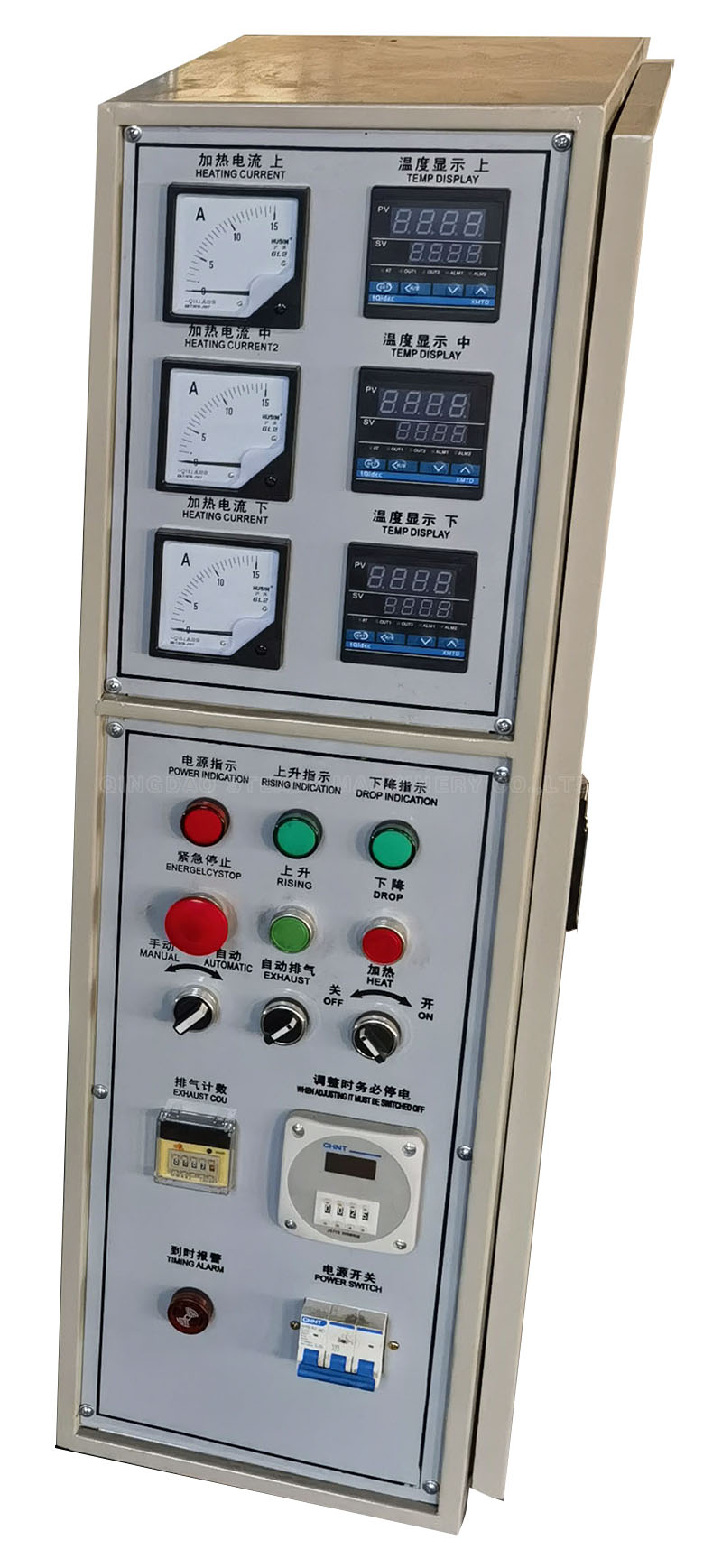
Control Box
Mainly there are two kinds of electronics for choice. 1. China domestic made: CHNT or Delixi
2. imported international famous brand: Siemens, Schneider, Omron, Abb, etc.
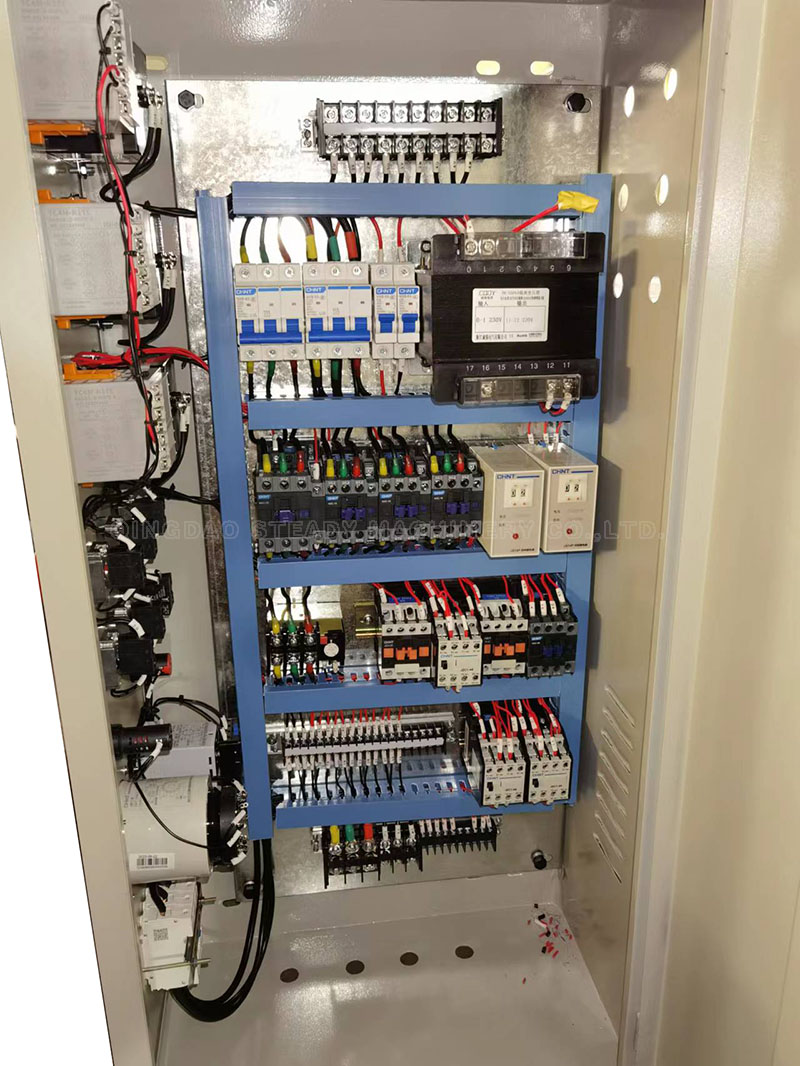
Oil Cylinder and Piston of my company's rubber vulcanizing press machine:
Oil cylinder adopts QT500-7 ductile iron, called FCD50 in Japan, and for some huge size machines, we adopt cast steel oil cylinder;
piston adopts chilled hard alloy cast iron; seal adopt imported international quality sealing ring and dustproof ring, to ensure long working life.
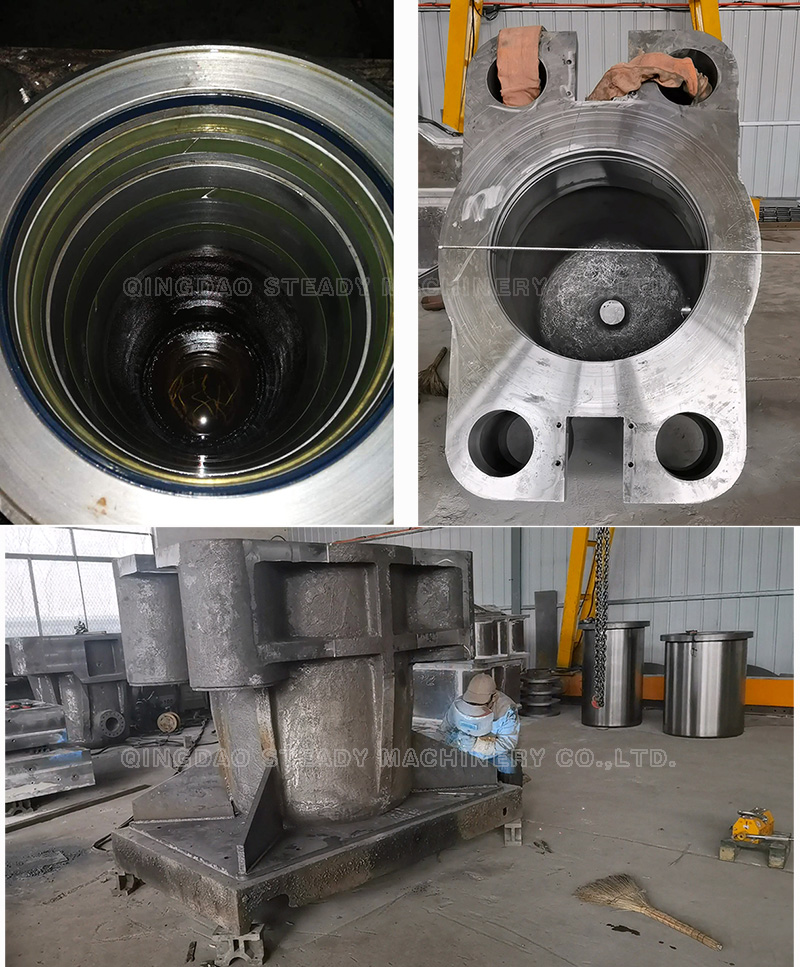
Main parts of our rubber vulcanizing press machine, all adopts casted ductile iron or cast steel, which has good stability, don't deformation.
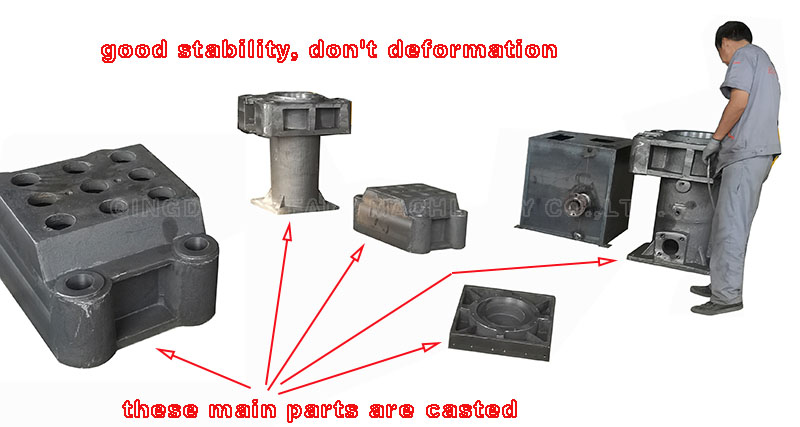
The piston of our rubber vulcanizing press machine adopts cold/chilled hard cast iron
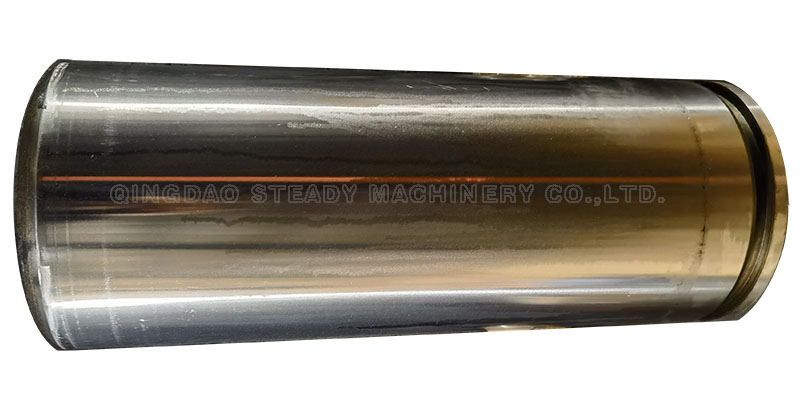
1、Basic knowledge of cold hard cast iron
Cold hard cast iron is a casting alloy material that is based on elements such as iron, carbon, and silicon. By adding alloying elements such as chromium, molybdenum, and vanadium, and through casting and heat treatment processes, it achieves excellent hardness and wear resistance. Its hardness and wear resistance far exceed those of ordinary cast iron and gray iron, and it also has high strength and toughness, which has been widely used in the industrial field.
2、 The Hardness Characteristics of Cold Hardened Cast Iron
The hardness of cold hard cast iron is mainly achieved through heat treatment and chemical composition control. Compared to other casting materials, its hardness is extremely high, usually between 60-65 HRC, while the hardness of steel is only between 50-55 HRC.
3、 The manufacturing process of cold hard cast iron
The manufacturing process of cold hard cast iron mainly includes two processes: casting and heat treatment. During the casting process, control the chemical composition ratio in the as cast state to ensure the ratio of ferrite and pearlite; During the heat treatment process, magnesium spheroidization is subjected to high-temperature treatment, followed by quenching and tempering to obtain excellent hardness and toughness.
4、 The Application Prospects of Cold Hardened Cast Iron
Due to its excellent properties such as hardness and wear resistance, cold cast iron is widely used in manufacturing mechanical parts and tools under high load and high wear working environments. In the field of engineering machinery, some key components have also begun to use cold cast iron materials to improve the service life and safety performance of machinery.
Valves
Qingdao Steady Machinery Co.,Ltd. adopts international famous brand solenoid valves for it's rubber vulcanizing press machine.
Which works accurately and has a long service life.
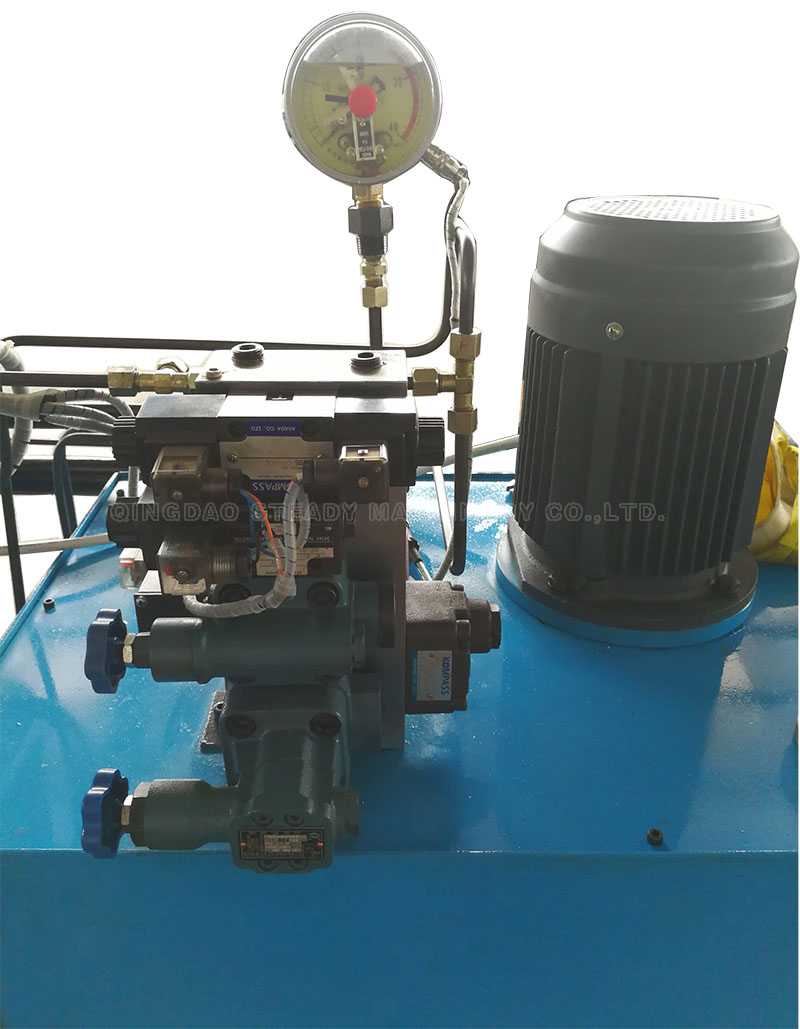
Motor
We adopts China famous brand motor or imported brand motor if customers' have special demand.
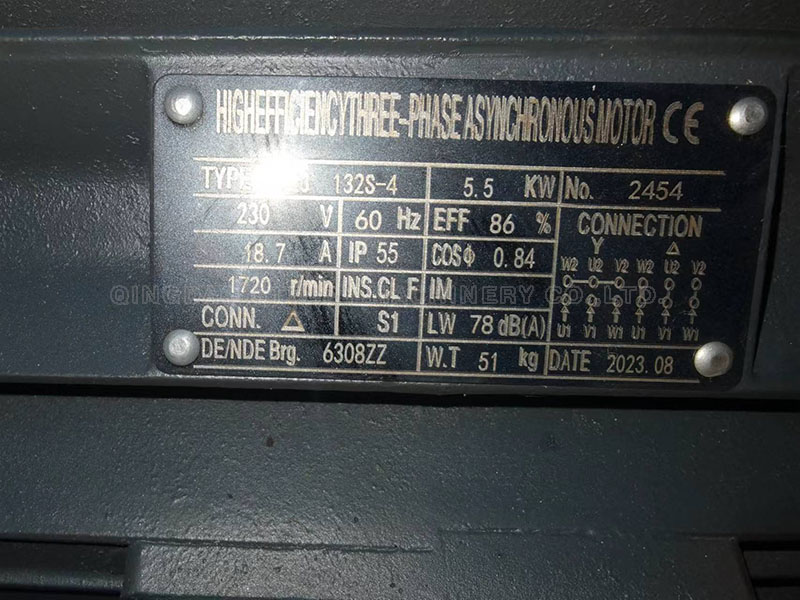
The brand of motor we choose uses high-quality copper wire for coils and wiring, which has excellent conductivity.
Copper wire motors have good conductivity, low resistivity, and can achieve larger output power at smaller currents, thereby reducing electrical energy loss. Good corrosion resistance.
Copper wire motors are less prone to rusting and have a longer service life.
Excellent reliability. The connection points and joints of copper wire motors are easy to solder and connect, thus having higher reliability.
More durable.
The durability of copper wire motors is better than that of aluminum wire motors, because aluminum wire has a higher resistance than copper wire and generates higher heat during use, which can easily burn out the motor.
More energy-efficient, copper wire motors have a smaller resistance and lower heat generation, making them more energy-efficient.
More silent, copper wire motors used in our rubber vulcanizing press machine have less noise because aluminum wire motors have a noise level approximately 7 decibels higher than copper wire motors.
Good parts ensures good machine quality, but it need plus a good design.
Our engineer service team provide in time design according to customers work needs or special requirements:
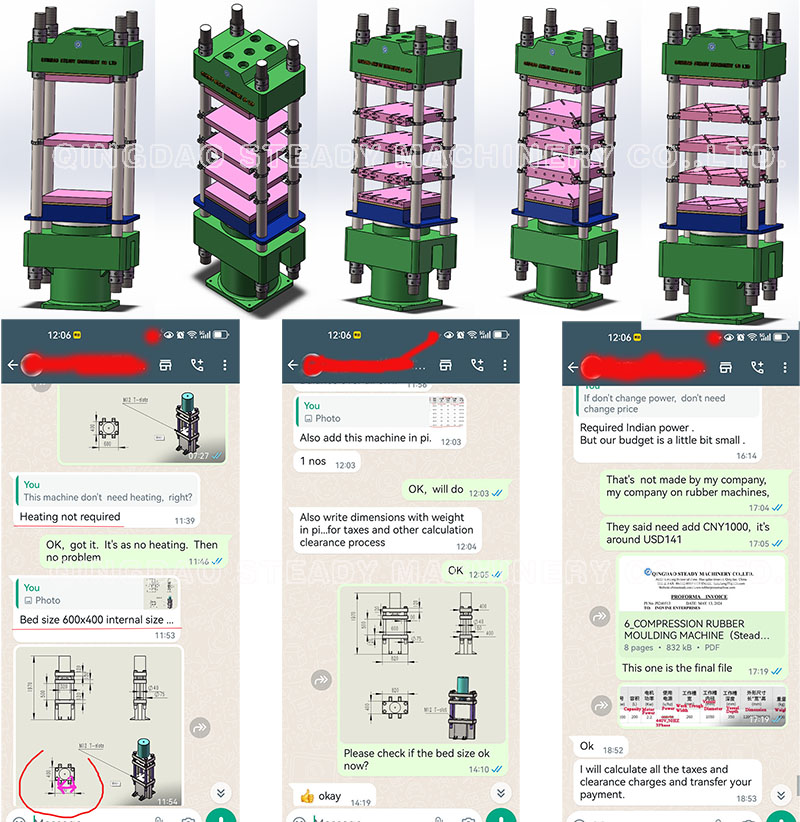
Various kinds rubber products can be made by rubber vulcanizing press machine
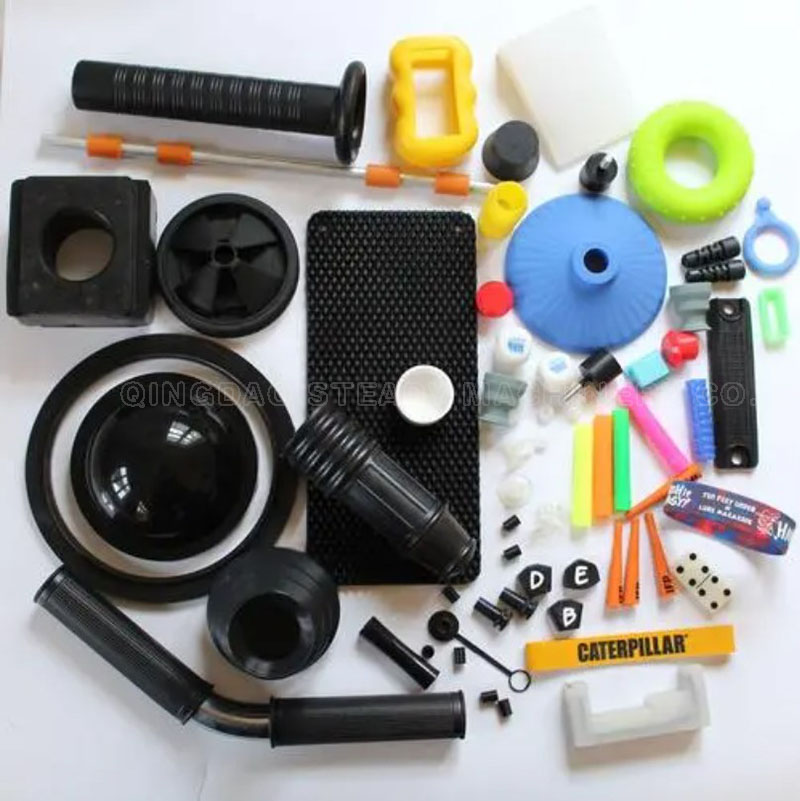
Rubber Molds
We can also make molds according to clients' samples or drawings:
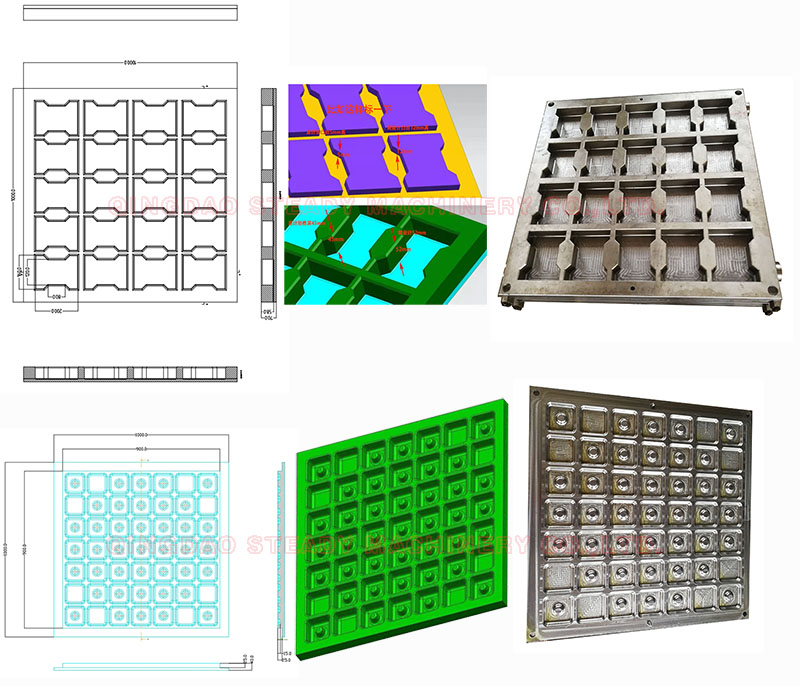
Just contact us


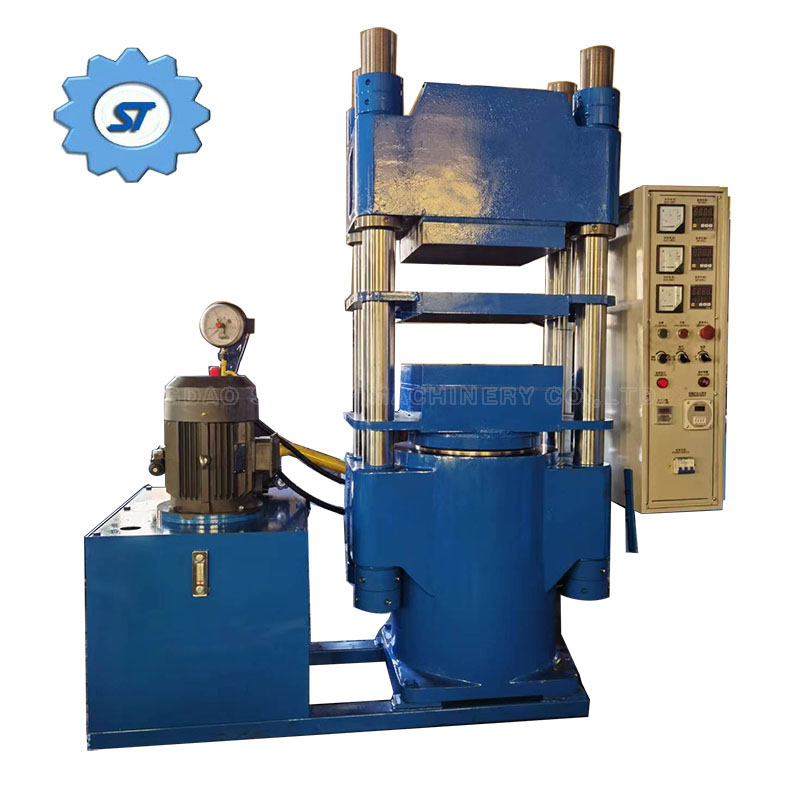
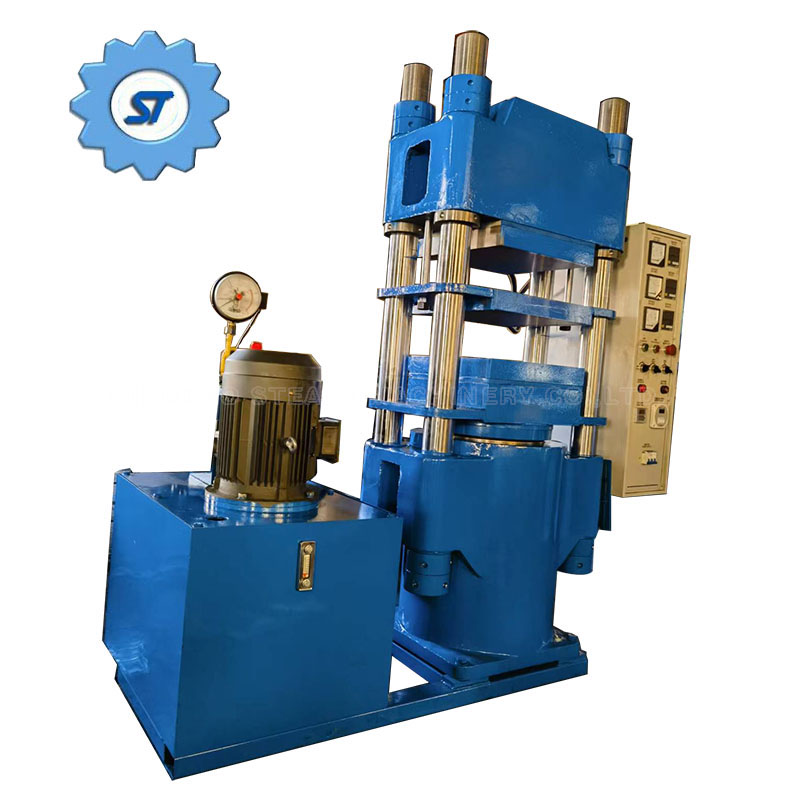
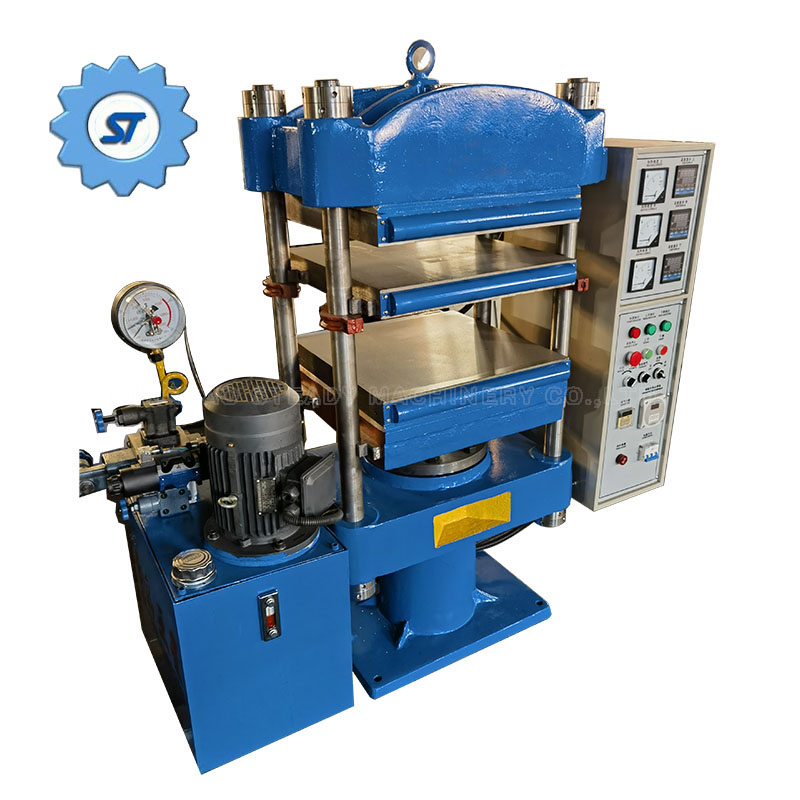
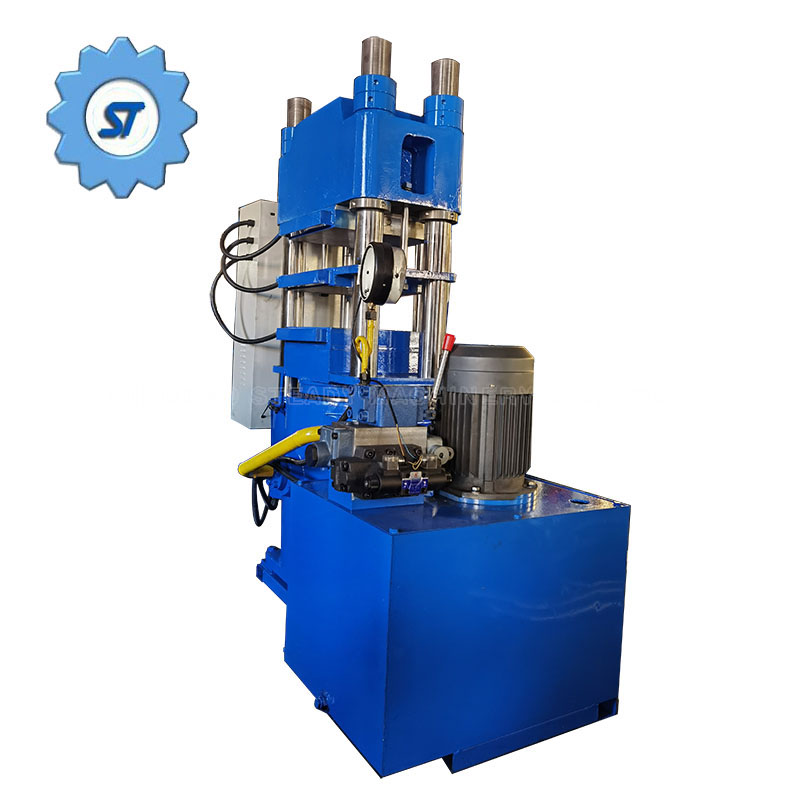
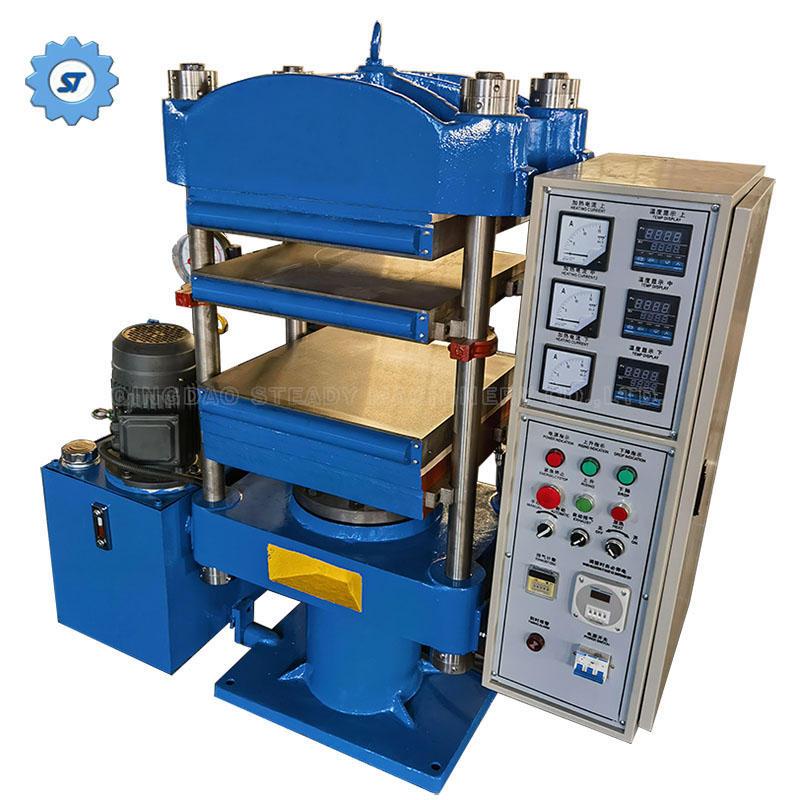
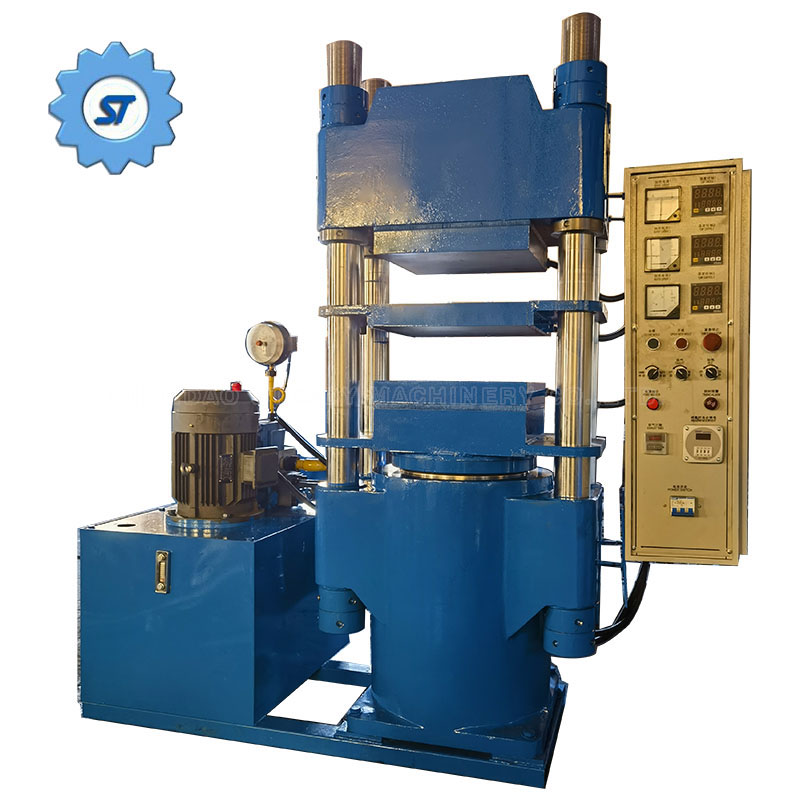
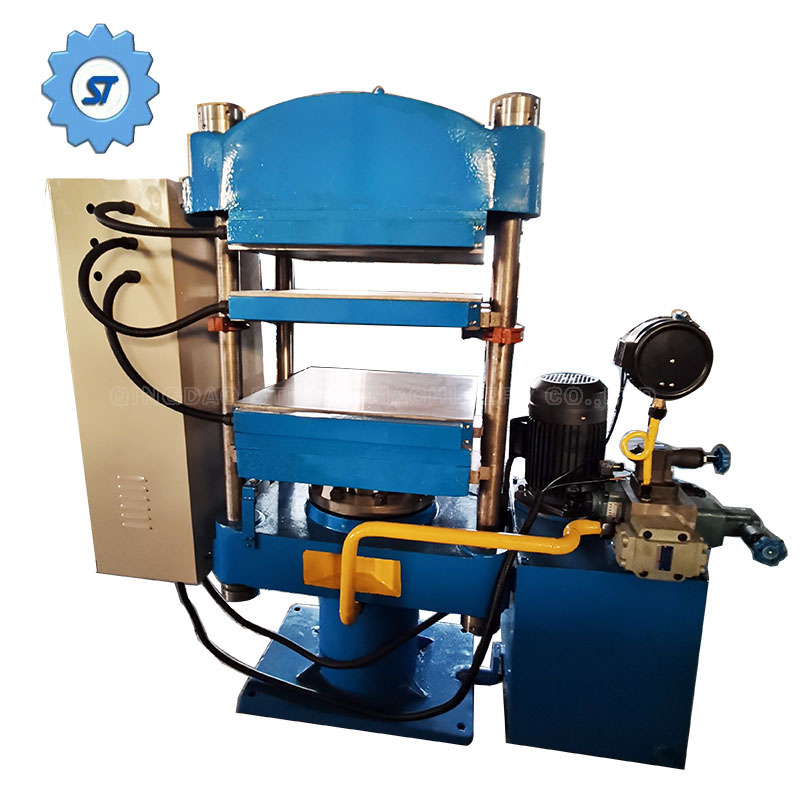
Comments: